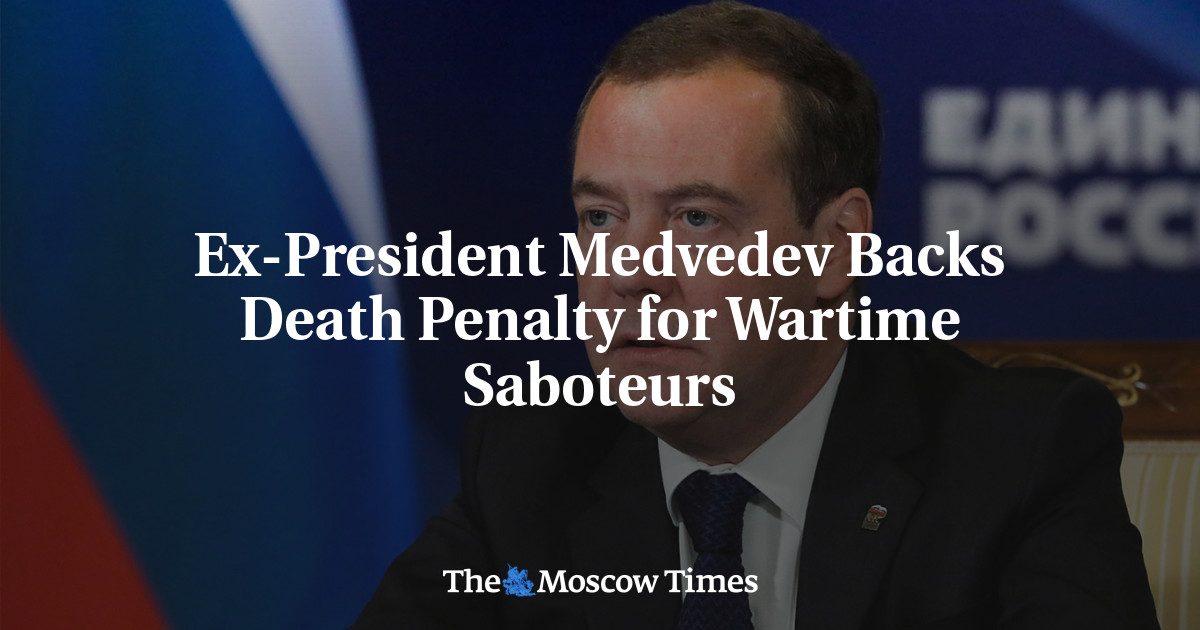
Former Russian President Dmitry Medvedev on Wednesday called on Russia to reinstate the death penalty for those suspected of wartime sabotage.
“We can overcome the moratorium on the death penalty, if necessary, within the framework of the current Constitution,” Medvedev wrote on his Telegram messaging app channel.
“It’s a matter of choosing the means to protect the interests of our people, the state and society,” the deputy head of Russia’s Security Council said.
Medvedev’s comments came in response to the arrests of Russian and foreign citizens suspected of plotting to damage railroads and power lines and sabotage the country’s war on Ukraine.
“If you are a traitor who committed a crime during wartime, you have no… right to protect your life,” he warned, adding the spate of attacks on military enlistment offices and the car bomb killing of a prominent Russian ultranationalist’s daughter to the list of actions that should be punishable by death.
While capital punishment has a legal basis in Russian law, the Kremlin imposed a moratorium on the death penalty in 1996 as a condition for membership in the Council of Europe, Europe’s oldest rule-of-law body.
The Council of Europe suspended Russia the day after Moscow’s troops invaded Ukraine on Feb. 24, in what Medvedev described as a “good opportunity” to reinstate the death penalty.
Moscow formalized its exit from the Council of Europe in September.
On Wednesday, Medvedev said the reinstatement of capital punishment would require “a change in the legal positions of the Constitutional Court.”
Constitutional Court chairman Valery Zorkin said this summer that the death penalty could only return under a new Russian Constitution.
Senator Andrei Klishas, head of the Russian Federation Council’s constitutional committee which opposes the reinstatement of capital punishment, invoked Zorkin’s stance Wednesday in an ongoing spat with the ex-president.
The Kremlin denied Thursday that it was in talks to restore the death penalty.
Medvedev served a single presidential term in 2008-2012, allowing Vladimir Putin to circumvent constitutional term limits. He was appointed to the powerful Security Council in 2020 following an eight-year stint as prime minister.